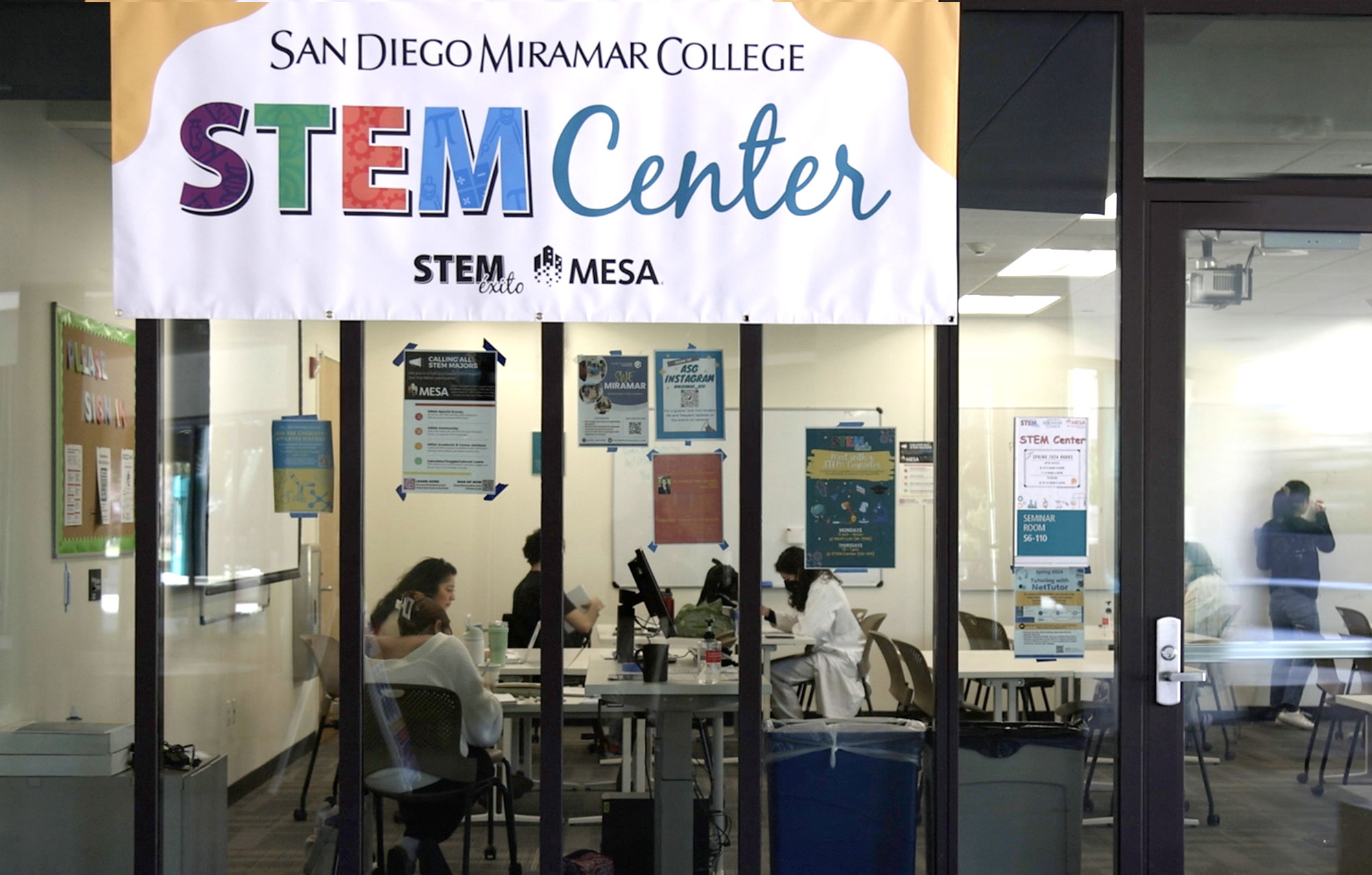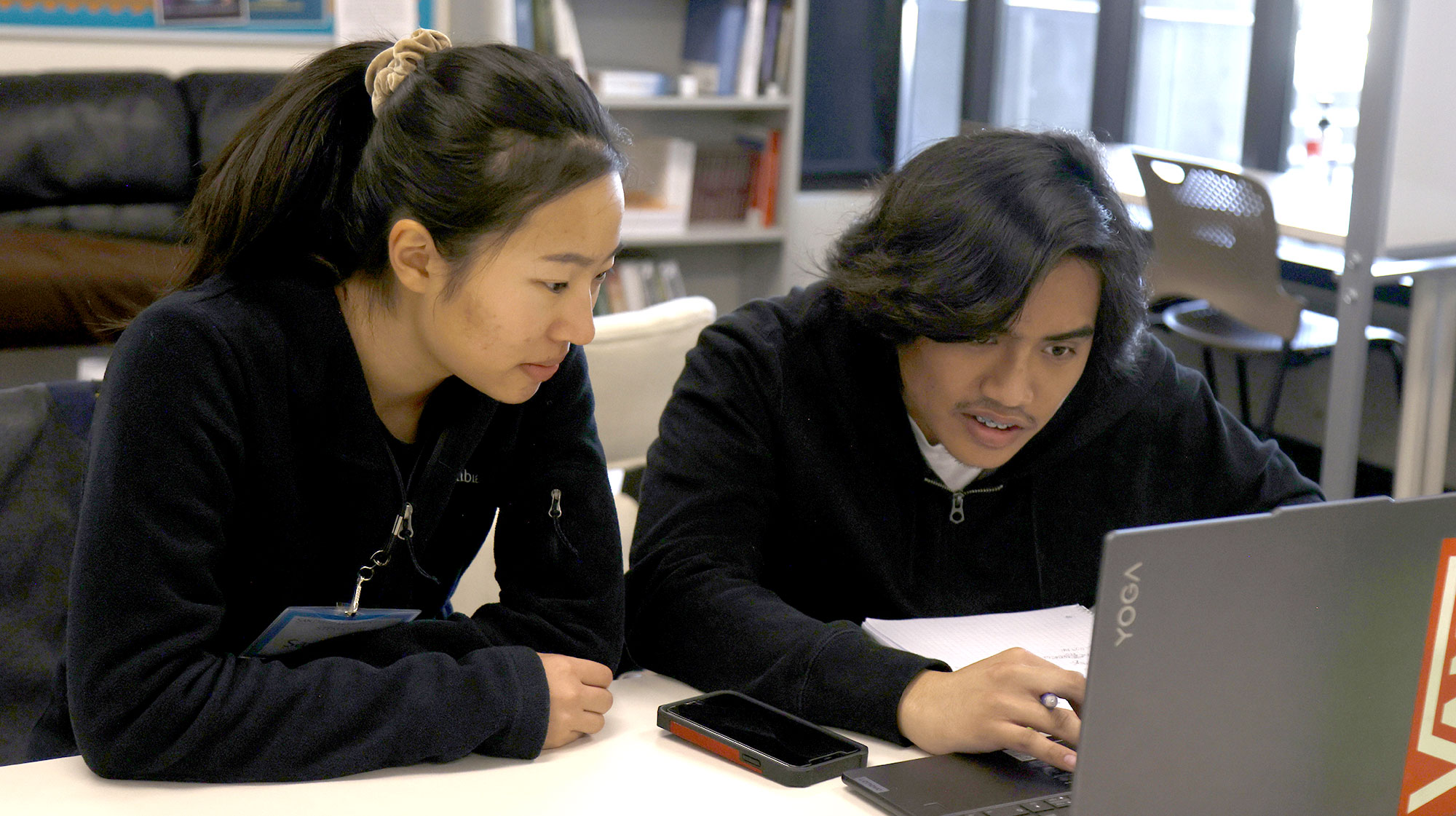
The San Diego College of Continuing Education, is in the process of setting up a tutoring center scheduled to open in fall 2024.
“Tutoring helps support students and individualizes education to support student development,” said Mark Manasse, coordinator of the tutoring program at Mesa College.
The Mesa Tutoring and Computing Centers (MT2C) have about 80 tutors who provided almost 6,400 tutoring sessions to more than 1,350 students in fall 2023, nearly doubling totals from the previous fall. Tutoring sessions are available at the college’s Learning Resource Center, as well as at various hot spots across the campus.
Sometimes a student who comes for tutoring could also be dealing with circumstances outside the classroom, such as homelessness or food insecurity, that affects their ability to concentrate in class. Tutors also can assist those students, Manasse said.
“Our tutors are well-versed in our campus resources,” he said. “We can help students find the resources that they need to help them succeed.”
At City College, there is a long-standing commitment to tutoring through the Tutorial/Learning Center, Math Center, and English Center, all located in the L- Building/Academic Success Center. The three centers work together to provide thousands of sessions each semester to students across the curriculum through peer tutoring, workshops, and supplemental instruction/embedded tutoring, as well as access to study spaces and computers.
Becky Wheelock, an adjunct professor who started tutoring in high school and had taught math at City College for 22 years before transitioning to work in the Math Center last year, emphasizes the importance of engagement in the tutoring process.
“We want people to love math as much as we do, but we understand that’s not the way it works,” she said. “Tutors and staff at the Math Center are all happy to say when we don’t know something, and we like to model that for our students. It’s important for students to know that we don’t just know stuff, but we’re here to help them figure it out together. It’s that ‘figuring it out’ process of collaborating that is the joy of math.”
The goal of the leaders of the three centers at City College, including Wheelock, Lance Soukhaseum, and Chris Baron, is to collaborate closely with faculty to help foster independence and mastery of material, engage student learning, and improve student self-esteem.
“Tutoring helped me feel more connected to the campus,” said City College student Xenia LaFave, who utilized the English Center for tutoring before becoming a tutor herself. “It gave me a safe place to ask questions in a helpful environment. It helped me feel more confident in my classes.”
Donnie Tran, coordinator of the Academic Success Center at Miramar College, said most of their 35 to 40 tutors are students. Tutors gain as much as the students receiving tutoring, he said.
“In addition to knowing strategies on how to tutor, they are getting training in how to be equity-minded,” he said. “They become aware of themselves, and they also approach situations in a culturally responsive way.”
Miramar offers in-person tutoring at four locations around campus, such as English, grammar, and writing support in the Arts and Humanities H-building where most writing-focused courses are held, so that a tutor is always nearby when a student needs one. Embedded tutors are provided in some math, English, and career education classes.
Tran said the role of Miramar College tutors, who served 703 students in spring 2023, is to guide students in a welcoming way so that they can understand the subject on their own.
“We don’t give them the answer,” he said. “We make them independent learners.”
At College of Continuing Education, a new faculty coordinator is being hired for a tutoring center to be located at the Educational Cultural Complex campus, said Minou Spradley, interim vice president of instructional services. When the new center opens in the fall, students seeking tutoring will enroll in a class to get assistance.
“It’s important to the success of our students,” Spradley said of the student body where many report being refugees, asylum seekers, and naturalized citizens, and more than 50% are over the age of 50. “They need high touch. They need a safe space. They need a space where they are not judged and they are welcomed.”
